I am not an avid historical fiction reader but this book may have made a convert of me. Based on the true story of a wealthy 16th century orphan whose guardian loses her inheritance and then casts her out to survive on her own on an island off the coast of “The New World,” Isola is a gripping read on survival, faith, and self-knowledge. In my opinion, the book’s chief merit is its electric pace, accelerated by “omg!” chapter-ending cliff hangers; there were many nights I stayed up late because I had to know what the next chapter would present. This propulsiveness reflects deft plotting on Goodman’s part; to tell a story (especially one whose punchline is more or less known) in a way that makes you wonder, while nail-biting, what’s behind door one, two, three is no accident. I also felt her handling of Marguerite’s self-education — the heuristics of how she learns to comport herself, protect herself, hide herself, detect threats, etc — well-considered and believable, especially as carried out in Marguerite’s interactions with the villainous Roberval, a stern Calvinist who squanders her property, bullies her, and ultimately maroons her on an island for her love affair with his secretary. Roberval’s insidious cat-and-mouse game with a teenage Marguerite prior to their departure for New France was as ugly as it was illuminating; we watch Marguerite learn a lot about herself and her own safety through those negotiations (just as she does by foolishly trusting the house maid with her secrecy). It is as though Marguerite’s circumspection gathers on the page before us; experience, we observe, is a cruel teacher. As a bildungsroman, then, this novel is highly effective in its patient establishment of the protagonist’s naivete (I found her obliviousness to Claire’s social situation painful to observe in the opening chapters), the careful outline of the moments that most deeply incite her development, and her final, lustrous presentation as a courageous, thoughtful, and sensitive soul. Cleverly, these phases of her growth (postulate, novitiate, then self-actualized adult/mistress) coincide with powerfully evocative vignettes: her cloistering as a child (in homes, surrounded by luxury and waiting ladies), then her exposure to the elements while at sea and on island, and finally her formal presentation to the Queen. I loved the motif of gratitude that emerges from Marguerite’s self cultivation; she suffers terrible pain, loss, and isolation, and yet, when asked about the blessings she enjoyed while on her “pilgrimage” (a spectacular euphemism), she replies: “I thought of icy waves and stars. I thought of Auguste and our child with his wondering eyes. I remembered Damienne, whose voice I heard inside of me. I have been loved, I thought.” To endure such grief and terror and still to understand the rare joy of being loved — what a beautiful homecoming message, and one that is roundly carried through the very concluding sentences of the book, where Marguerite is heading off to start her school for girls, and she observes: “I thought of winter’s ice, and I was grateful for the sun. I knit my fingers into my horse’s man, and I, who had walked, felt blessed to ride.”
Despite these narrative and thematic achievements, I found Marguerite’s voice problematically distant throughout the novel. Even though the story is told in the first person, her character runs stiff and difficult-to-know. I imagine this is in part a performance of the formality of the historical period, but I kept longing for more pulp, intensity, depth, especially given the absolute wilderness Marguerite endures. (Show us the woman undone!) I especially felt this way after the death of Marguerite’s son. I was waiting for a Circe-grade disruption, and instead found dishwater-warm exposition. In general, I found the prose — while poetic — rather thin, and I think the characters could have benefitted from more depth as well, especially given the length of the novel and the degree to which we are invited into Marguerite’s inner thoughts. Goodman does pose some profound questions: What does it mean to have faith? How do we define ourselves when stripped of everything we know, when left entirely to ourselves? (Who are we when no one is watching?). I also felt Goodman’s manipulation of the concept of “aloneness” inviting: Marguerite is on the one hand free, but on the other hand abandoned; she is lonely but also unencumbered. However, many of these motifs bob at the surface level, remaining question marks versus explorations. If we compare this novel’s treatment of “isolation” to one of our earlier Magpie Book Club picks, Charlotte McConaghy’s Wild Dark Shore, which also takes place on a remote island and grapples with themes of grief, family, and survival, Isola comes up noticeably short.
All in all, I would still recommend this book as a page-turning thrill ride that glints off the surface of powerful questions about identity, resilience, and faith. What did you think?
Isola Mood Board.
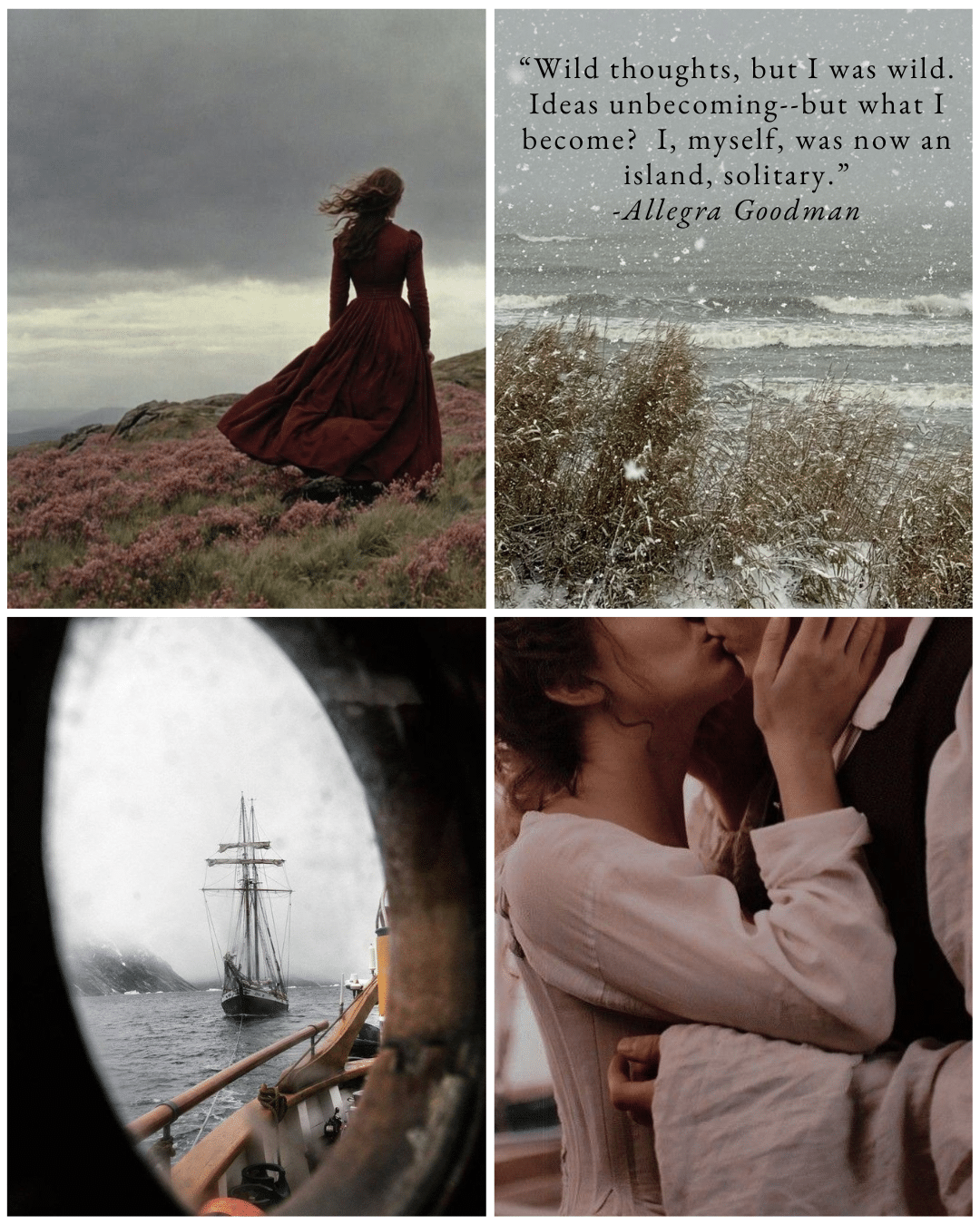
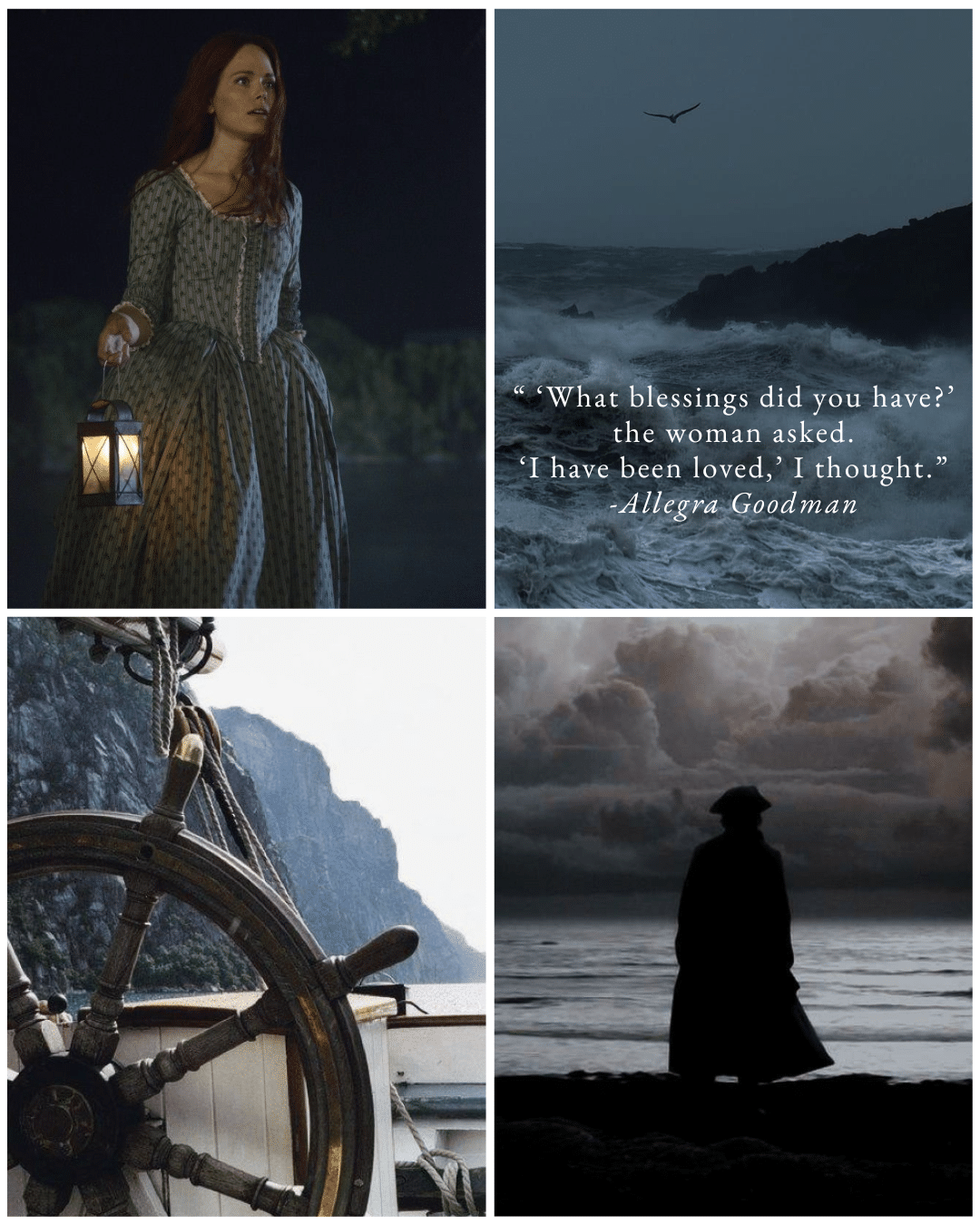
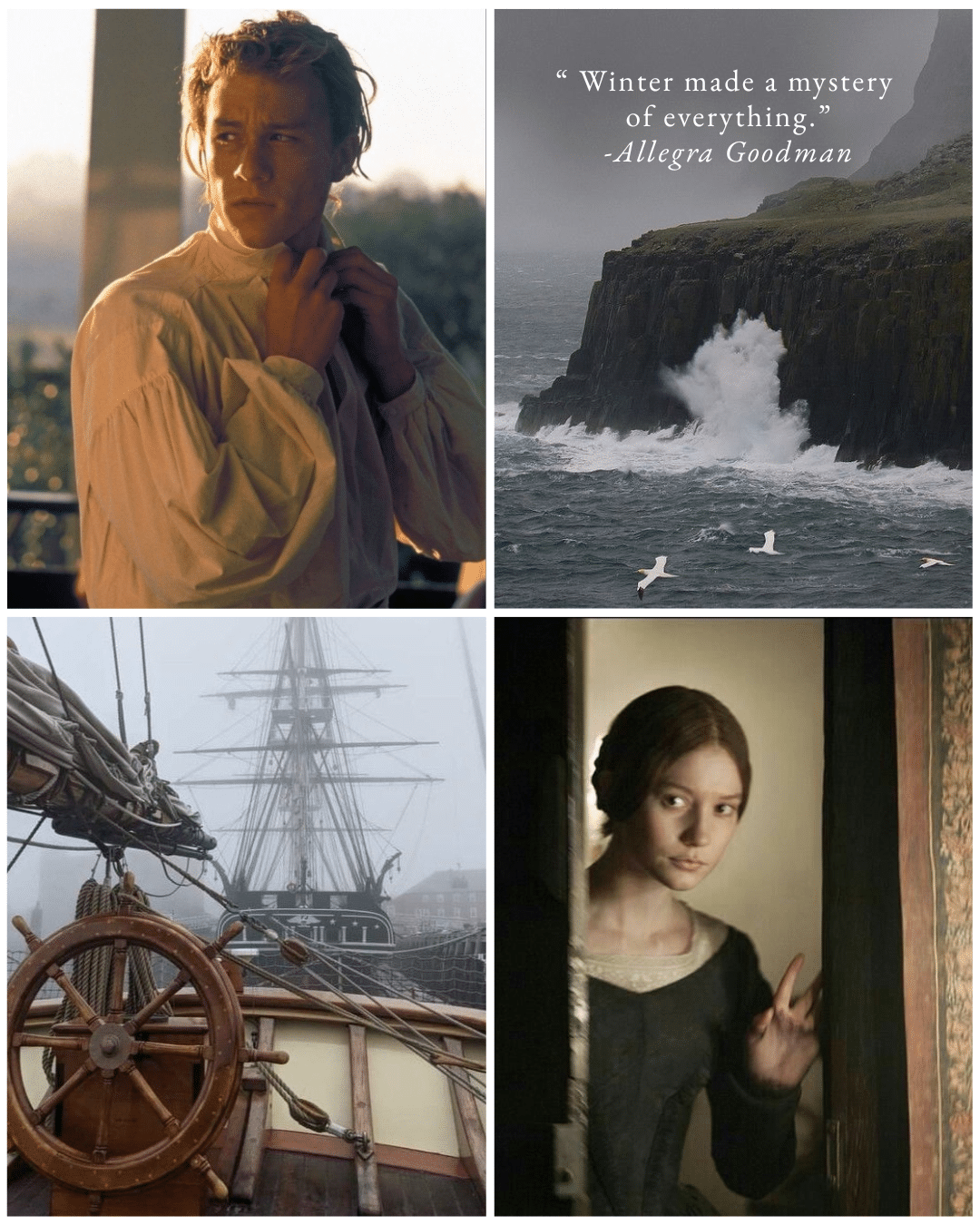
Isola Book Club Questions.
+Trace the theme of entrapment throughout the novel. What spaces and people “capture” Marguerite? How does this shape her sense of autonomy?
+Marguerite interacts with birds, foxes, and polar bears while on the “Island of Changes.” What do these negotiations with animals teach Marguerite? What is the significance of the bear claw?
+Marguerite initially names the island “Isle of Birds,” and then changes it to “Isle of Changes.” What does this renaming suggest?
+What did you think of the relationship between Damienne and Marguerite? Would you characterize Damienne as a foil, a teacher, a mother figure, a dependent, something else? Does her role change over time?
+Is there a sense of justice in this book? Is Roberval held accountable for his violence?
Isola Reading Experience Favorites.
I loved that I was able to read a portion of this book on chilly early-fall mornings, with my favorite reading blanket (use code JEN15 for 15% off), my favorite cotton sweat suit (Magpie readers have pointed me in the direction of this look for less), my favorite clogs, and these unfussy, perfect mugs.
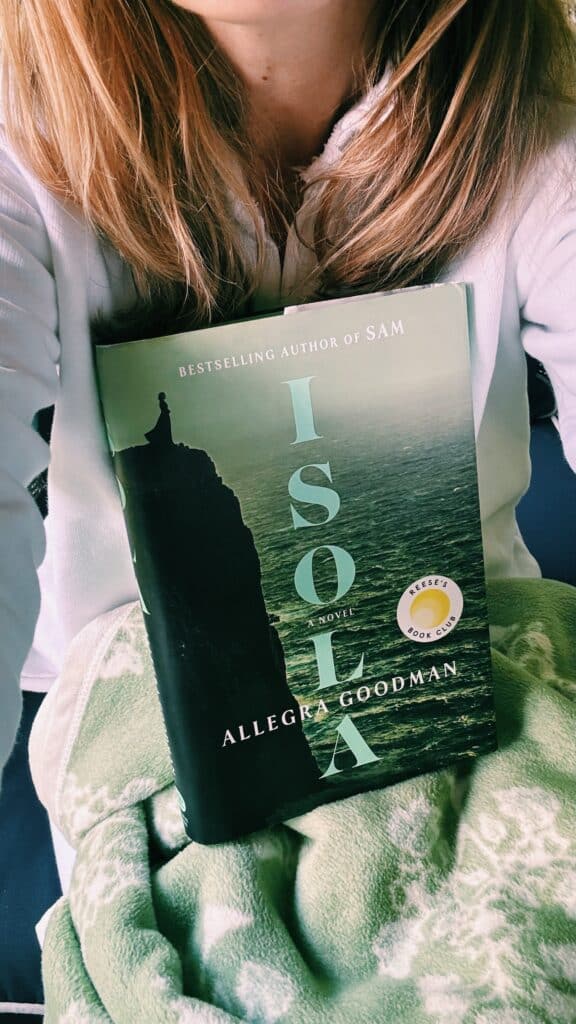

Isola Playlist.
If this were made into a movie, I’m imagining a sweeping instrumental score a la “The Duchess,” which I often listen to while writing: big scores, lots of wind instruments that reflect the sweep of the story, the cross-Atlantic travel, the drama of isolation. But I had fun putting together a contemporary soundtrack for this, as I think a lot of the themes in this novel read interestingly from a feminist lens, and I chose a lot of big female vocalists for the accompanying playlist. I personally love the vision of Roberval disappearing into the party fracas, roundly snubbed by Marguerite, to the words of Linda Ronstadt: “You’re no good, you’re no good!” — one of my favorite revenge songs, right alongside “Better Man” by Little Big Town (oof, the lyrics wield a thin and effective blade: “Sometimes in the middle of the night, I can feel you again / But I just miss you, and I just wish you were a better man.” Zing!). Also, “The Alchemy” playing while Auguste and Marguerite abscond for their secret romance below deck…! And how about “What Was I Made For?” while Marguerite is enduring her first winter alone without Damienne or Auguste or her son, a little figure on a big barren wasteland, carrying kindling, trudging through snow, praying in the dark cave?! Yes!
Playlist on Apple here and Spotify here.
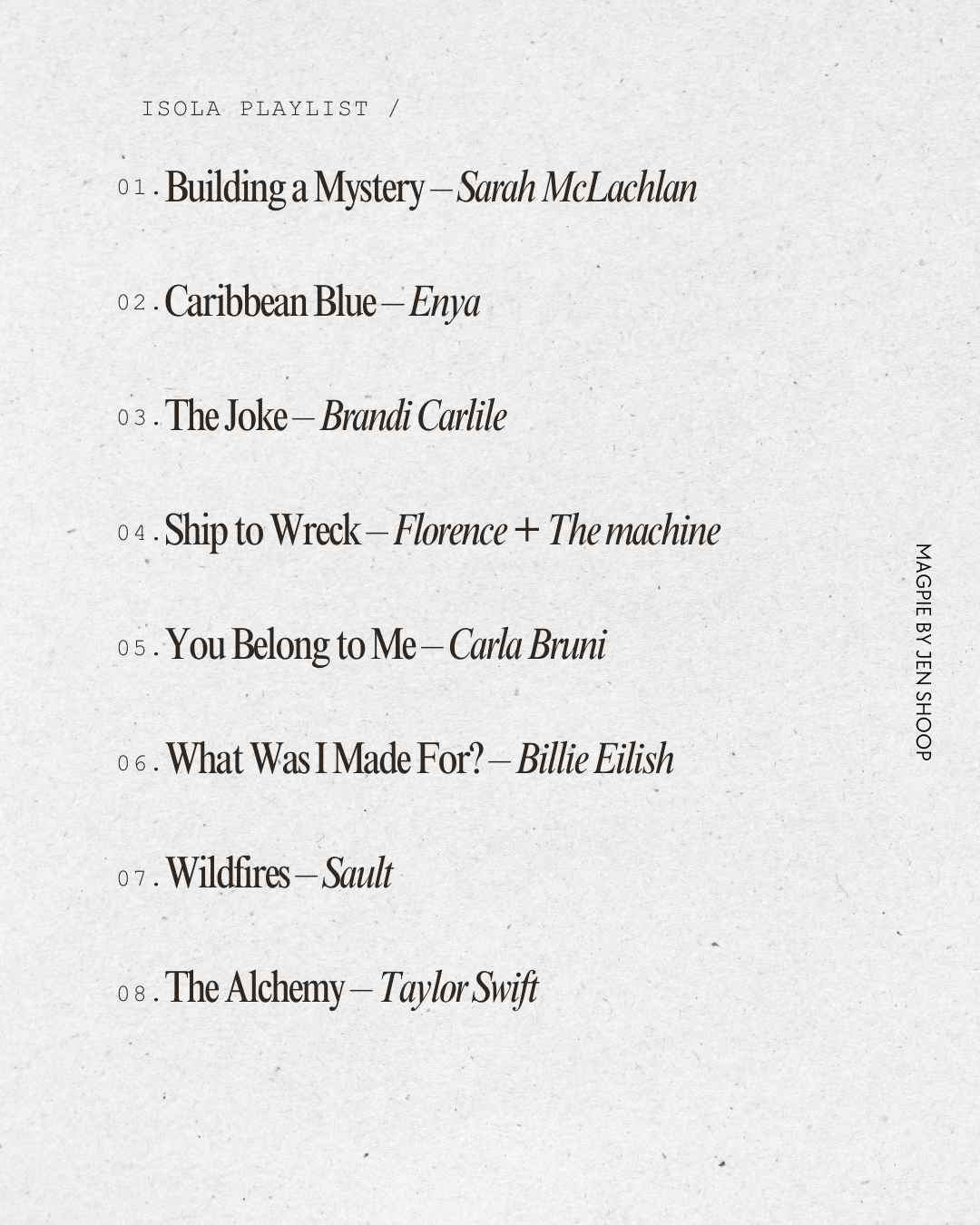
Just for Fun: Dreamcasting.
Who were you imagining in a movie version of this book? I kept thinking of Heath Ledger as Auguste (dark eyes, light hair), Lesley Nicol (the chef / Ms. Patmore from Downton Abbey!) as Damienne, Russell Crowe (?) as Roberval, and had a difficult time with Marguerite’s casting. Who would you cast? This is my favorite trivial little activity.
None of these picks (or the photos above or below) are historically accurate but felt evocative of the movie’s vibe. Is Heath Ledger NOT Auguste?!?!?
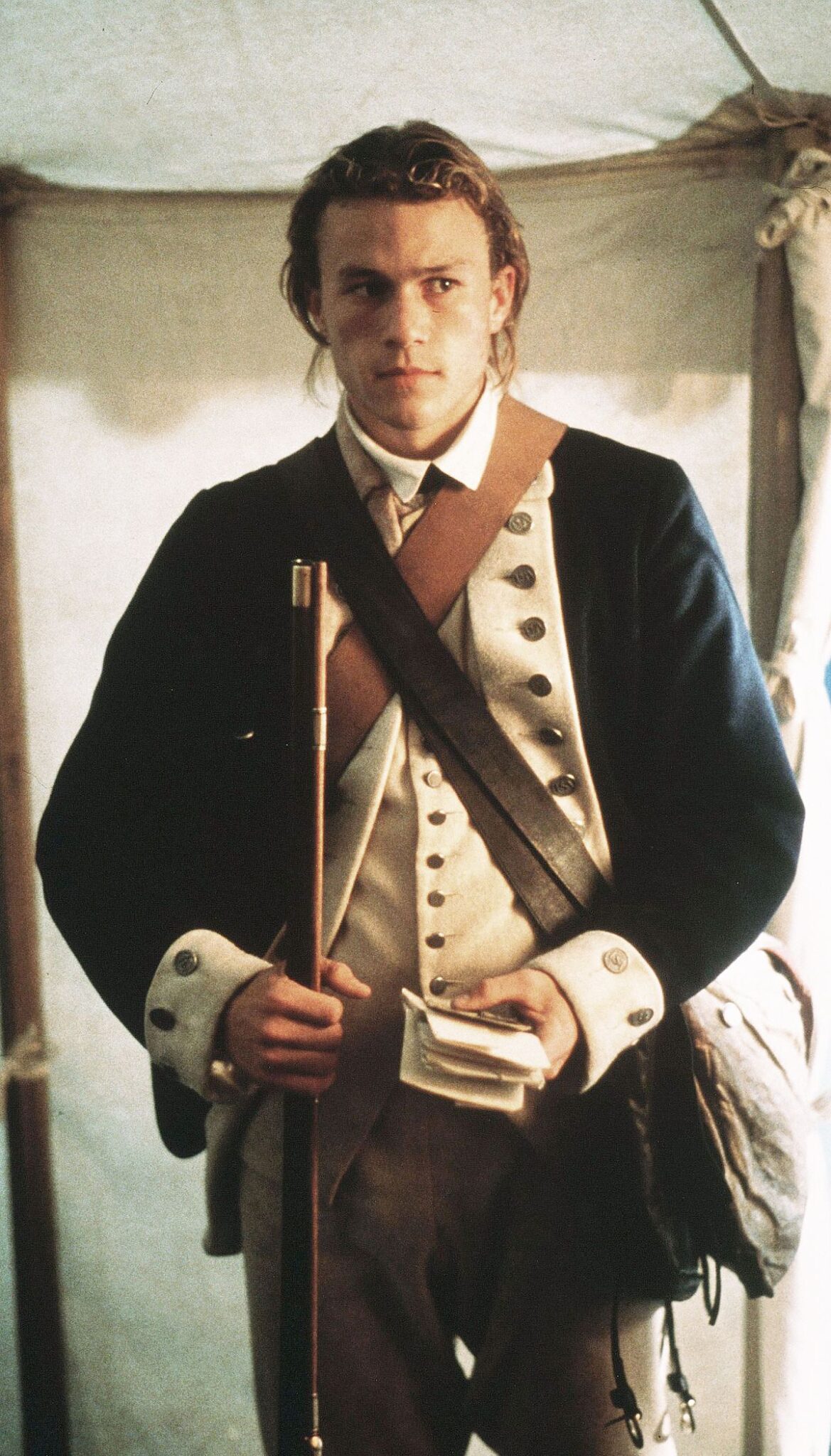
Magpie October Book Club Pick.
Next up: The Names by Florence Knapp! This book has been getting a lot of buzz among friends of mine. Description: “In the wake of a catastrophic storm, Cora sets off with her nine-year-old daughter, Maia, to register her son’s birth. Her husband, Gordon, a local doctor, respected in the community but a terrifying and controlling presence at home, intends for her to name the infant after him. But when the registrar asks what she’d like to call the child, Cora hesitates…” This book asks: can a name change the course of a life?
So many of our books grapple with catastrophe — many of them natural disasters and threats — and the fact that a storm foregrounds the scene in this novel intrigues me. I also love the explicit focus on language, naming, identity.
More fun fall reads here! And please share any standouts you’ve come across recently and/or nominate our November book club pick in the comments!
Post-Scripts.
Shopping Break.
If you want more Magpie, you can subscribe to my Magpie Email Digest for a weekly roundup of top essays, musings, conversations, and finds!
+ Shop all my favorites here and Le Shop here.
+ I own many Dorsey pieces, but their Clemence necklace is my long-time favorite – easy to layer but elegant on its own against a bare neckline!
+ Tory Burch Romy Tote – perfect work/everyday mom bag. Find more of my favorite tote picks here.
+ Obsessed with these Rag & Bone widelegs! Probably one of my top two or three most worn pairs of jeans.
+ One of my all-time favorite tees from Ayr – a perfect hybrid between a tee and a sweatshirt.
This post may contain affiliate links. If you make a purchase through the links below, I may receive compensation.


Oooh I can’t wait for The Names! P.S. your wallpaper is gorg! Xo
Yay! Looking forward to hearing your thoughts, too!
The wallpaper above was actually at a hotel! Wish it were mine.
xx
I am a huge fan of historical fiction and I really enjoyed Isola, couldn’t put it down!. Your review was excellent and so thoughtful. And, I learned a new word today bildungsroman!
Oh good!! On all fronts. What other historical fiction works have you enjoyed recently? Definitely got lost in this book!
xx
I love reading about Tudor England, so anything by Alison Weir, Phillipa Gregory…
Oh yes!! I know Gregory has a huge fan following. I need to revisit!!
xx
The Names! Such a great book! Lots to discuss. Still thinking about it after finishing it last month.
Ooh yay! Can’t wait to meet you here for a chat in a month! xx
The Names is one of my favorite books I’ve read this year! I found it incredibly engaging – once I started reading I literally could not put it down and finished it that same night.
YAY!!!